Today sees the start of Mental Health Awareness Week (16th – 22nd May) and we know that as a CMHA member you will no doubt be engaging in a range of different activities to raise awareness of mental health in your organisation over the coming days.
This year the theme of MHAW is ‘Relationships’ and how nurturing positive relationships, both at home and at work, is good for our mental health and wellbeing. Throughout the week we hope to share what our members are doing via the CMHA Twitter and website channels so please do keep us updated with your news. We are also delighted to share a guest blog by former City worker Alex Clelland who shares his view on what relationships mean to him and his mental health. Alex now works as Communications Advisor and Coach.
Relationships at work - staying connected
It’s easy to make friends in the workplace. The sense of community and shared purpose, together with the forging of strong bonds through tough times, mean you connect. Let’s face it, we spend more time with co-workers than we with most of our friends in the long-term. No wonder people go out drinking together, form romantic liaisons and treat each other as comrades-in-arms.
But there’s another side to this. Relationships at work can be tough. They come with expectations that go way beyond your job description. If you’re new, people judge you on how well you ‘fit in’, and that can mean a lot of different things depending on where you work.
Are you a big drinker? Do you love football? Are you one for shooting wild birds? Of course, we are all social chameleons and do our best to get along, in our own interests and those of our colleagues.
I like to think I can get along with most people. I have a dry sense of humour and a good sense of perspective on work, which I try and foster among those who work for me. I really enjoy the pastoral aspect of managing a team and developing people and their talents. As a coach, I use that approach to bring the best out of people working with me and I often find people seek me out as a sounding board.
But I have had my party phase in life and alcohol no longer plays an important role in my socialising, nor do ‘Thursday drinks’ hold any interest for me. It’s not because I don’t like people, and I do make an effort, but on the whole I’d rather not. I find the environment difficult together with heavy drinking colleagues. It’s not just the terrible music and deterioration in behaviour. I personally prefer 1-1 lunches to develop working relationships. Quality over quantity.
Depression can make it hard enough to turn up to work in the first place, so making small talk in a pub and faking smiles and jollity can fill me with dread when my mood is low. Going to work and socialising are important parts of feeling connected and key components of good mental health. But when things look bleak, finding the energy to do either is a challenge, let alone both.
Of course, this has an impact on relationships. One colleague assumed I was an alcoholic, while others have just assumed I didn’t like them and was just being polite during work hours. It makes me appear aloof. Actually I really like the people I work with, it’s just about making different choices of how to connect.
In the past, when I have felt down, I have occasionally confided in a colleague, but there is a risk of depending on someone too much. After a while, it can be hard for one person to play this role. For someone like me, asking for help has always been difficult, so when I felt better, I was embarrassed and a little ashamed of having relied on someone else for support. Especially a colleague.
I know and accept it’s not a sign of weakness to ask for and accept help. It is so important as the first step to recovery. But I also know close relationships you develop when you need support can suffer when you recover. Almost like a drunken fling, neither of you can be comfortable talking about it. That changes with time, but it can be awkward.
On the plus side, I can spot the signs of distress in others and I think part of my management role is taking a holistic approach to the wellbeing or my team. Relationships are a two way street and I hope I make a contribution both ways




